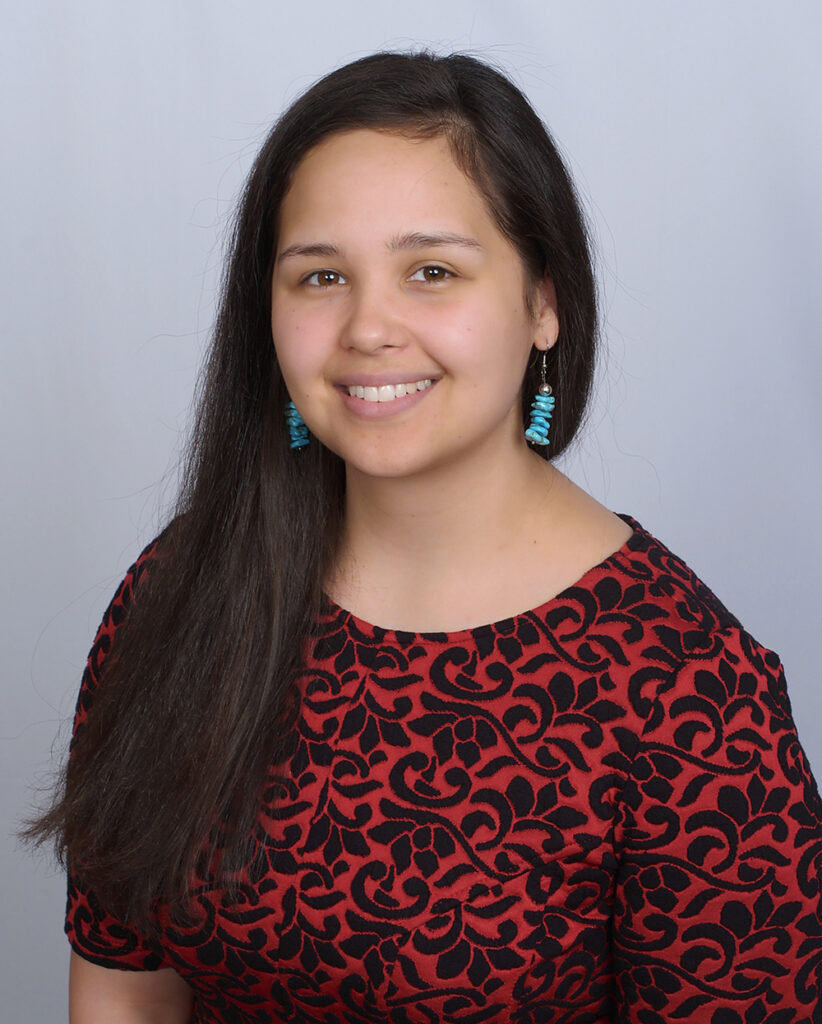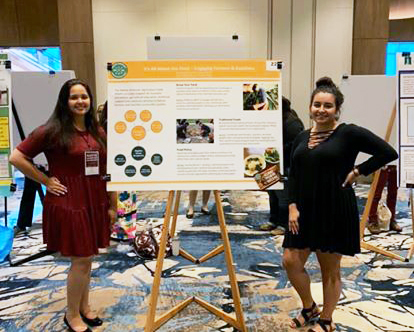
Although she grew up on a family farm in southeastern North Carolina, Karli Moore ’16 didn’t consider studying agriculture until she was already a pre-med chemistry student at NC State. After a chance review of her brother’s agricultural economics homework piqued her curiosity, Moore took a few classes to gauge her interest. She ended up graduating with bachelor’s degrees in chemistry from the College of Sciences and agricultural business management from the College of Agricultural and Life Sciences.
Moore is a member of the Lumbee Tribe and now works for the Native American Agriculture Fund, a charitable trust devoted to strategic grant-making in support of Native American agriculture. As an associate program officer, some of Moore’s day-to-day activities include structuring grant processes, managing grantor-grantee relationships, collaborating with national organizations to promote Native American agriculture, and researching long-term investments for entrepreneurial competitiveness in the agriculture sector. Over the past year and a half, Moore and her colleagues have generated four requests for applications resulting in $28 million in grants being awarded across 200 organizations.
After graduating from NC State, Moore encountered a plethora of opportunities. Fresh out of college, Moore took a job with BASF Ag Solutions in Research Triangle Park. “I had a rare chance to work on a new national biodiversity initiative encouraging farmer participation in monarch butterfly conservation,” Moore explains. “I worked with world-class professionals across disciplines like research, communications, sales, marketing, and governmental affairs to craft meaningful change among our customer base.”
Moore decided to pursue a master’s degree in agricultural economics at the University of Arkansas, where she won a national impromptu speaking contest with Minorities in Agriculture, Natural Resources and Related Sciences and completed a robust study abroad program at Humboldt University in Berlin that led to a second master’s in international rural development.
“My graduate school study abroad was one of the most pivotal points of my life,” Moore shares. “I built a life (if only for nine months) in a faraway place and found a growing confidence in myself. [The experience] showed me that there are many paths, many places where life can lead, and I am able to find contentment and success in lots of ways.”

at a conference on Native American nutrition.
Moore has thrived in instances when her leaders encouraged her to be independent and creative.
“The most significant experiences have been those where leaders have trusted me with more autonomy, resources, and creative direction than my limited professional years would dictate. I’m very thankful for those leaders (all women, that’s a plus!) who let me bite off a big chunk and work hard to pull it off.”
Moore defines her time as in the Park Scholarships program as constant exposure to new, meaningful ways to contribute to society. She particularly valued her interactions with scholars and leaders who spanned various disciplines and opportunities to engage with peers from different fields.
At NC State, Moore was a 2016 valedictorian and Mathew’s Medal recipient. She appreciated being mentored by the College of Sciences’ Dr. Jamilia Simpson, as well as her time as Student Body Treasurer, her work with the Native American Students Association and American Indian Science and Engineering Society, and her experience studying abroad in Poland.
Moore encourages current Park Scholars and NC State students to use their status as college students to constantly ask questions and try new things.
“You can start an internship to see what life would be like in that field without committing long-term. You can pose hard questions to leaders and those in power, you can access scholarships to see the world and you can start new ventures with university resources. Take advantage!”